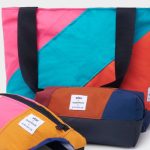Cocona Labs, makers of 37.5 sustainable thermoregulation technology, have incorporated an additive that allows 37.5 fibers to biodegrade at enhanced rates once placed in landfill conditions*. The new offering does not affect comfort or performance giving designers more freedom in balancing performance and sustainability.
The amount of waste from discarded textiles is at an all-time high, with very few end-of-life recycling options for fabrics.
“In the U.S., only 15 percent of textile waste is recycled. Textiles make up 8 percent of all landfill waste, 21 billion pounds of waste, or 70 pounds per person, per year. In Europe, over half of discarded textiles end up in landfills or are incinerated,” said Cocona Labs.
37.5 yarns are now available with an additive that is permanently embedded at the fiber level, enhancing the ability of microorganisms already present in landfills to bind to and break down the fibers, speeding up the natural degradation process. Its new additive does not cause the fibers to fracture into smaller pieces of microplastic that then remain unchanged. The fibers are converted into naturally occurring byproducts at the molecular level.
“Modern, more efficient landfills are increasingly able to capture and reuse some of these byproducts as a renewable energy source,” said Cocona.
*Third-party lab testing under ASTM D5511 shows an almost complete breakdown of 37.5 staple fiber in two years in an accelerated landfill environment. In actual landfills, these yarns will now break down over decades, unlike standard polyester that will sit unchanged for centuries.
Chart courtesy Cocona Labs








